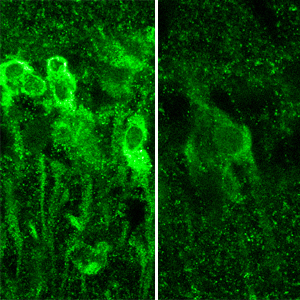It’s a condition glorified in the hit buddy comedy The Hangover, and one most heavy drinkers experience at some point: the drunken blackout. The condition is even more common in users who mix alcohol and vicodin or other opiates.
For years frightened parents and misinformed high school health teachers have been telling kids that alcohol-induced blackouts are caused by toxic booze killing off brain cells. New research from Professor Yukitoshi Izumi at Washington University School of Medicine in St. Louis, Missouri, suggests that nugget of common wisdom may not be scientifically accurate.
Professor Izumi’s results indicate that alcohol is actually preventing new memories from being recorded in the first place by influencing steroid production in a region of the brain known as the hippocampus. The hippocampus has long been associated with memory formation. A case study of a patient with hippocampal damage who lost the ability to form new short-term memories was the inspiration for the movie Memento.
“We’ve found that exposure to alcohol inhibits some receptors and later activates others, causing neurons to manufacture steroids that inhibit memory formation,” said Professor Izumi.
Izumi’s team studied slices of hippocampus taken from rats. They discovered that the hippocampal cells that were treated with the largest amounts of alcohol exhibited memory formation deficits. The study was duplicated by researchers at the University of California San Diego. They made the additional discovery that some people are actually predisposed to alcohol-induced blackouts.
Professor Izumi's research is an important step toward understanding both the long-term and short-term effects of alcohol abuse on the human brain. As a researcher involved with the California study puts it, "Not fully recalling one's life experiences, particularly those that occur while one is intoxicated, creates a state of vulnerability where the chances increase for the individual to incur all kinds of problems."

Left: hippocampal neurons exposed to alcohol
Right: normal hippocampal neurons